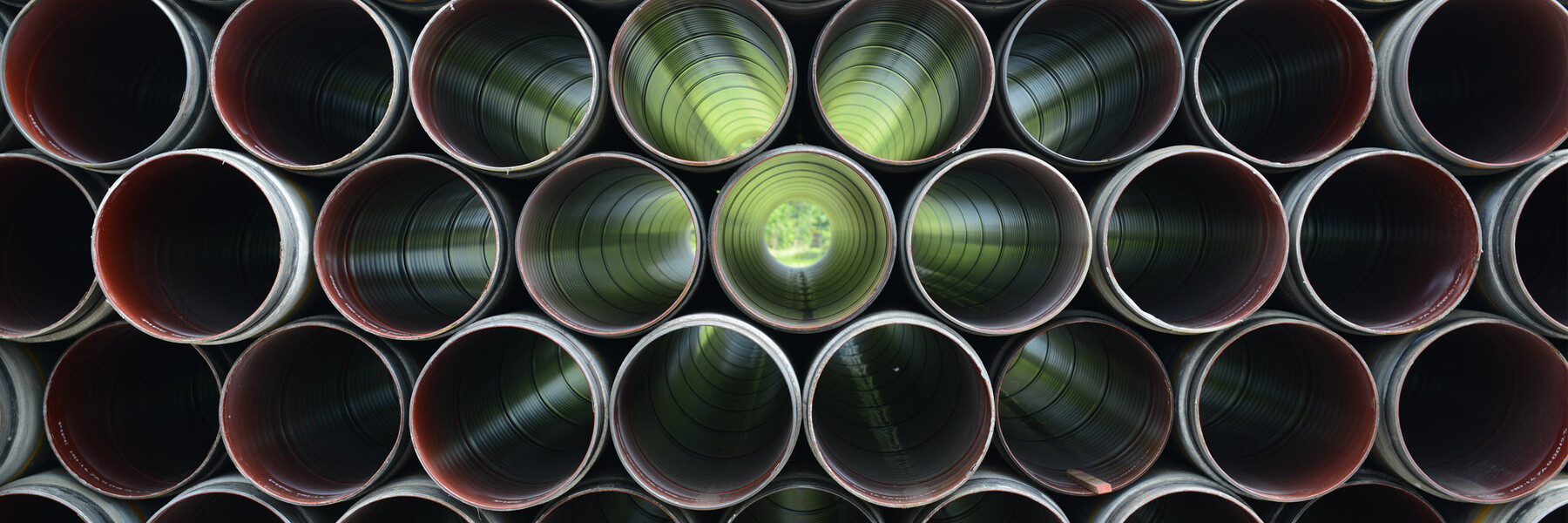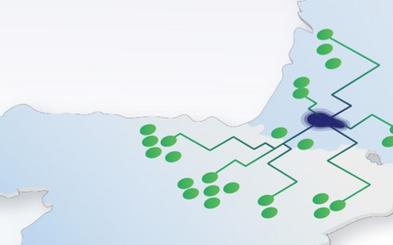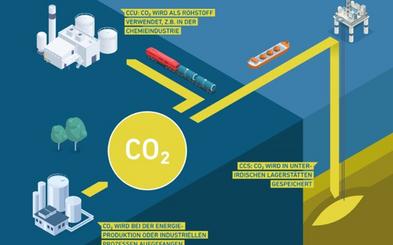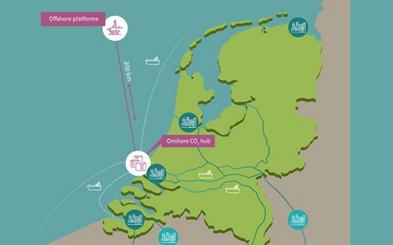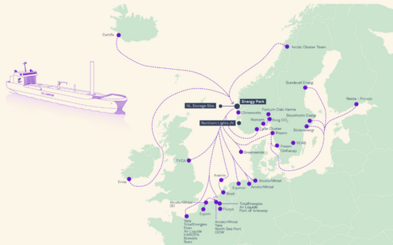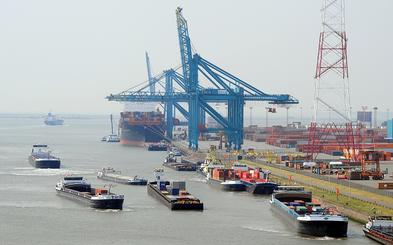INNOVATIVE PROJECTS PLATFORM
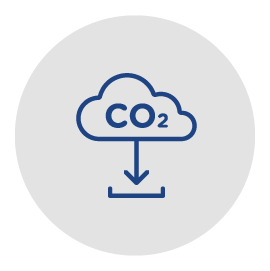
CCS
Carbon Capture and storage is the process of capturing waste CO2 from large point sources, such as fossil fuel power plants, transporting it to a storage site, and depositing it where it will not enter the atmosphere. The aim is to prevent the release of large quantities of CO2 into the atmosphere.
Terega
Pycasso
PYCASSO looks at the potential to provide a mutualised territorial service of CO2 valorisation and storage for at least the 50 years to come. This programme enables the study of how South West France underground reservoirs, which have supplied France with gas for 60 years as well as the industrial basin that were built around this gas facility, can be a decarbonation solution of the industrial activity in the South West of France and the North of Spain.
Gasunie, OGE
ENERGY-HUB Port of Wilhelmshaven
In the ENERGY HUB we are not only dealing with ways of exporting CO2 to partner countries, but also with developing regional material cycles. Here, recycled carbon is a valuable and environmentally friendly alternative to oil, coal and natural gas - in the future also as a fuel and for plastics production.
Gasunie
Aramis
A large scale CO₂ transport and storage service, the Aramis project is a cooperation between TotalEnergies, Shell, Energie Beheer Nederland (EBN) and Nederlandse Gasunie, aims to make a significant contribution to the energy transition by reducing CO₂ emissions for the hard-to-abate industries. It will do this by offering a decarbonisation solution for the industrial sectors by enabling the transport of CO₂ to depleted offshore gas fields under the North Sea.
Fluxys
Northern Lights
The Northern Lights PCI is a commercial ship-based CO2 cross-border transport network. It connects European carbon capture initiatives with permanent carbon storage infrastructure under the Norwegian North Sea. PCI projects and participants can benefit from simplified permitting and the right to apply for EU funding from the Connecting Europe Facility programme. The Northern Lights PCI is linking project promoters located in seven European countries.
Gasunie
Porthos
Porthos focuses on transporting and storing CO2 that is captured by various companies. The companies will supply their CO2 to a collective pipeline that runs through Rotterdam port area. The CO2 will then be pressurised in a compressor station, transported through an offshore pipeline to a platform in the North Sea and pumped in an empty gas field. In its early years, the project will be able to store 2 to 2.5 million tonnes of CO2 per year.
Contact: S.J.R.Ransdorp@gasunie.nl
Gasunie
Athos
The Athos project aims to develop a public CO2-distribution network in the North Sea Canal area, enabling CCUS: the capture and transport of CO2, for usage or to be stored in empty gas fields under the North Sea. By doing so, Athos makes an important contribution to the Dutch climate objectives.
Contact: S.J.R.Ransdorp@gasunie.nl
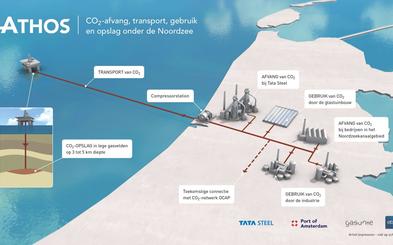
OGE
CO2 transportation grid
The transportation grid consists of the CO2 starter grid and expansion routes. With a length of 964 km, the planned CO2 starter grid is set to transport 18.8 million tons of CO2 in future. Locations are connected where CO2 is captured, such as the cement and lime industries, with places where CO2 is used, like the chemical industry – all with the goal of a circular economy. Locations are linked up where CO2 is captured with relevant port facilities like Wilhelmshaven.
Fluxys
Ghent Carbon Hub
Fluxys, ArcelorMittal Belgium and North Sea Port have started a feasibility study for the Ghent Carbon Hub project, an open-access CO2 storage and liquefaction hub in the Ghent part of North Sea Port.
Besides the use of carbon-neutral energy, carbon capture, utilisation and storage (CCUS) is essential for CO2 intensive industries to achieve net zero emissions, especially in hard-to-abate sectors with processes inherently generating CO2 emissions.
Fluxys Belgium S.A.
CO2 Capture in Port of Antwerp
Eight leading players in the Antwerp Port area – Air Liquide, BASF, Borealis, INEOS, ExxonMobil, Fluxys, Port of Antwerp and Total – have signed a collaboration agreement as a first move towards the possible development of carbon capture, utilisation and storage (CCUS) infrastructure. The consortium will carry out a joint study into the economic and technical feasibility of such facilities. CCUS applications can make an important contribution towards achieving climate goals.
Contact: michel.vandenbrande@fluxys.com
Gas Networks Ireland
Feasibility study of CCS in Ireland
Ervia and Gas Networks Ireland are investigating the potential for a large-scale CCS project in Ireland to capture the CO2 from a number of gas-fired CCGT power plants so that they provide low-carbon electricity. Initial findings suggest that CCS may be technically and economically viable for Ireland and over the next few years Ervia will progress feasibility studies into the technology for Ireland.
Contact: CORKCCS@gasnetworks.ie
